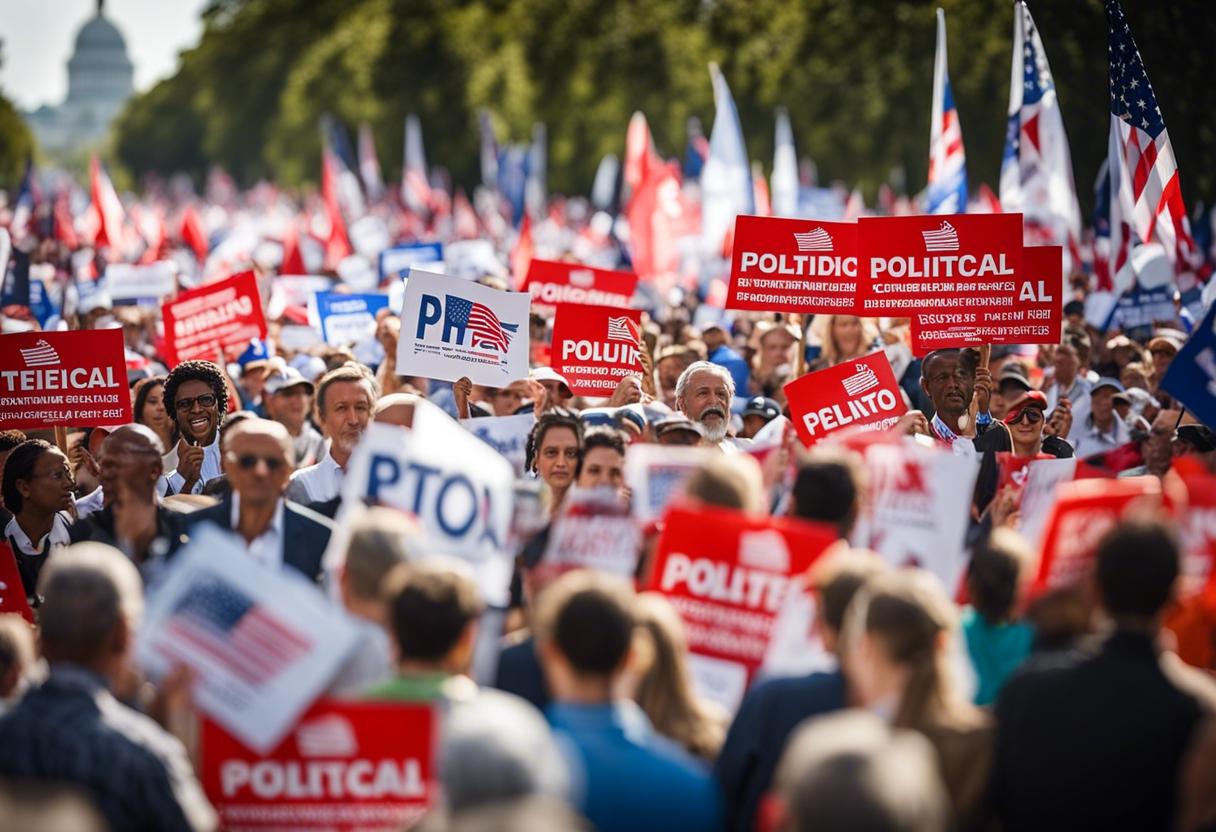The early morning crisis that hit the Democratic Unionist Party (DUP) on Good Friday, escalating with rumours about Jeffrey Donaldson, was a startling incident with no political roadmap to guide them. This was an unprecedented type of issue in the political landscape of Northern Ireland, where the repercussions could potentially destabilise the recently reinstated Assembly and Executive, restarted barely two months prior.
Different from the routine, this reinitiation had been the outcome of Donaldson’s assertive leadership, overcoming both internal and external resistance. Despite the opposition from some prominent members of his legislative team, he effectively facilitated an agreement which enabled both Sinn Féin and the DUP to occupy the positions of First and Deputy First Ministers. Now, the individuals who opposed his swift execution of the agreement claim that this haste is somehow related to the recent allegations raised against him.
Sentiments were positive since the beginning of February, suggesting that the Assembly and agreement were stable enough for the political mechanism to resume solid footing. His detractors within the party had struggled in vain to unify around a primary figure capable of dismantling his leadership the way he had done to David Trimble between 1998-2003.
Now all previous assumptions have been swept away. With the appointment of the party’s deputy leader, Gavin Robinson, as the acting head, there is an imminent leadership election. This unexpected opportunity has caught the critics of the deal unprepared, while even Members of the Legislative Assembly and party officials who initially endorsed the deal have begun to question the projected positive outcomes.
While the DUP can nominate a new leader, they cannot change the public’s association of their party with Jeffrey Donaldson. After his surprising resignation, Emma Little-Pengelly has pledged to do ‘everything within her power to maintain stability’.
A pivotal moment fast approaches when one of the detractors will seize the opportunity to trigger a leadership challenge, reigniting the internal feud within the party between the factions that support or oppose the deal. We should not prematurely conclude that Robinson would run for leadership, though I struggle to identify another prospective candidate who would support the deal so ardently.
Emma Little-Pengelly, who has deftly acclimatised to the position of Deputy First Minister, could be considered an alternative. Notably, this would ensure the party’s leader once again holds the role of an MLA. However, she does not have a democratic mandate, having been handpicked by Donaldson (who secured the Lagan Valley seat in 2022 and subsequently chose to remain an MP) for both her seat and her role as Deputy First Minister. This quick ascent to power has irritated the party’s long-standing members.
There is also a conundrum the opposition within the party faces; who would be their most viable candidate? The likely candidates would be the MPs: Carla Lockhart, Sammy Wilson, and Ian Paisley Jr. Despite Wilson having publicly supported the idea of Robinson leading the party into the upcoming general election, expected within a few months, he remains a prospective candidate. Paisley may not be ready to take the helm, and Lockhart does not seem particularly drawn to the prospect either.
An additional element to consider is the party’s susceptibility heading into the upcoming election. Its main rival against the deal, the Traditional Unionist Voice, has recently entered an electoral pact with Nigel Farage’s Reform UK. While it’s improbable this coalition will win many seats, their participation could potentially reduce the DUP’s share by two or three seats. Meanwhile, its pro-deal competitor, the Ulster Unionist Party, is more optimistic than it has been for some time and believes it could capture some seats.
Both factions within the DUP are likely to agree that preserving the unity of the party and retaining all their current seats are the immediate priorities; goals that would be unachievable amid internal conflict. Moreover, there is a widespread understanding within the party that exploiting the chaos surrounding Donaldson to incite a fresh internal dispute and precipitate political instability would not resonate well with the majority of their base, especially ahead of an already challenging election.
At present, the DUP chiefs are bending over backwards to stave off a potential fractious leadership contest, a scenario they likely will succeed in avoiding. However, the predicament arising if Donaldson steps down as an MP, a likelihood in my opinion, still remains. It isn’t just a contentious leadership election the party wants to dodge, but also a parliamentary byelection, as it could result in a clash between those in favour and against deal unionism, possibly leading to the loss of a seat that has been a cornerstone of unionism’s electoral triumph for the past hundred years. The authority to postpone such a byelection lies with Westminster, who would probably exercise it in exchange for maintained stability.
Having been an integral part of politics in Northern Ireland for nearly four decades, Jeffrey Donaldson is not unfamiliar with challenges. Nevertheless, the fallout from the current crisis involving Donaldson may pose the most significant test for the DUP yet, especially if the judicial proceedings and accompanying evidence end up being long-drawn. As this is an unprecedented situation, it is anyone’s guess as to how DUP’s base might respond. The party probably has the ability to manage the leadership and byelection outcomes. What they cannot determine or manipulate, though, is the association voters are now establishing between Donaldson and the party he once led.

